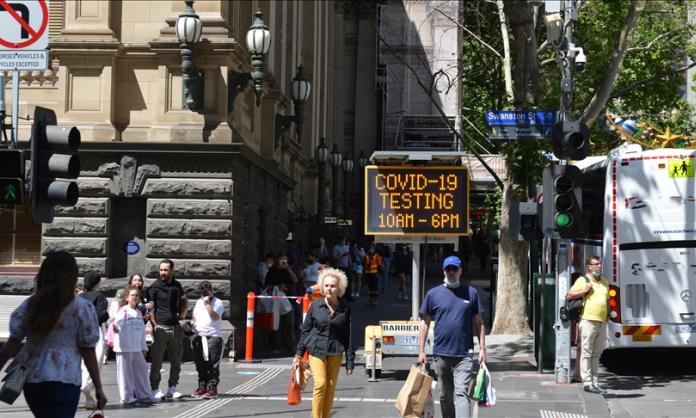Facing an unprecedented groundswell of opposition from rank-and-file members across the country, the leadership of the National Tertiary Education Union is pushing through with its plan to collaborate with university bosses to undermine decades of hard-won conditions in enterprise agreements.
In response to the spectre of collaboration, hundreds of members across the country have become more engaged in the union than they have been for years. Overwhelming majorities at mass branch meetings at Sydney, RMIT and La Trobe universities have passed motions against concessions. This was despite union leaders attempting to squash them. At Sydney, the first vote was 117 to two in favour of “no concessions”. A second meeting was called and a strong majority of the 250 members who attended reaffirmed their opposition. Unlike Sydney, La Trobe does not have a reputation as a highly engaged, independent branch. Yet after an attempt by the leadership to hold off a vote, the members held a second meeting the following day in which the “no concessions” motion was passed 71 to five.
Significant opposition to the union leaders’ proposals was registered at members’ meetings at Monash, Flinders and UNSW, including a tied vote at Monash. More meetings are planned in the coming week. Casuals’ networks and branch committees across the country have also passed motions of opposition. The scale of the rebellion is unprecedented.
This week, a hastily called national council “briefing” was rebadged as a “meeting of national councillors” to ram through a vote backing the national executive’s strategy of collaborating with management. The meeting approved the national executive's motion by a vote of 89 to 13. That's been touted as a vote of confidence in the strategy, but it has no standing in the union’s official rules – there was no procedure to propose motions beforehand, amendments were explicitly ruled out and procedural motions were repeatedly ignored. Before the vote, about which we had only just been informed, we were shown a professionally produced video that announced, “national councillors have voted”. The mover of the leadership’s motion proclaimed this the most important decision in the history of the union – yet the meeting of 100-odd was given 20 minutes to debate it.
Unfortunately, the top union officials provided scant detail about the deal they are negotiating with vice-chancellors, and even less in writing. This makes it extremely difficult for national councillors and those on branch committees to understand what is going on, let alone report back to members.
What we do know is that, during talks with managers at about half of the universities in Australia, the officials have agreed to set up national and local implementation committees. These will look at cost-saving measures, to be made through changes to existing enterprise agreements. The extent of the cost-saving measures at each university will be based on the financial impact of the health and economic crisis.
The cost-savings are still under negotiation, but one example given in the verbal report was to allow employers to cut our hours by 10 percent and slash hourly rates by up to 10 percent, with the first $40,000 per year exempted. This would amount to a pay cut of around $180 per week for those on the median full-time wage of around $1,250 per week before tax.
Apart from such details (or rather the lack of them), there are more fundamental issues. To the extent that sackings are due to a lack of demand – especially the sharp and surely increasing fall in international students – no amount of wage cutting will fix the problem.
More fundamentally, there is the issue of the role a union should play. A briefing provided to national councillors boasted that there would be “a strong union role in managing the introduction of any cost-saving measures”. The idea that union representatives will be equal representatives on “implementation committees” with management to work out what cuts to make to members’ conditions and wages is collaborationist madness that will neuter members’ ability to fight. How do unionists fight against cuts when their own representatives are busy negotiating their imposition?
A union should stand first and foremost on the principle of support for decent wages and good conditions for its members. It should back and encourage its members to fight for these.
We are told that we must sacrifice to avoid alienating workers who don’t have the conditions we enjoy. But what of the tens of thousands of families and dependants who rely on the incomes of university workers, many of them on already low wages?
Despite protests from the leadership, negotiating concessions is not “fighting” and members are smart enough to see that. Thousands have recently joined the union in the hope it will fight to defend them. But, as one new member noted in a union Zoom meeting, “Having just joined the union, I was surprised to see it talking about making concessions”.
A leadership that genuinely wanted to fight would be trying to harness the energy apparent in the mobilisations against concessions, at the very least as a bargaining chip. Instead, it has signalled its willingness to surrender members’ wages conditions and employed all sorts of bureaucratic obfuscation, filibustering and undemocratic manoeuvres to shut it down. The farce of the “vote of national councillors” is just the latest example.
We’ve had social media campaigns – selfies, hashtags, petitions. That should be just one component of a serious campaign: we’re a union, not GetUp. My workmates have many questions about what the changes to the agreement variation notification period mean, what the university is legally allowed to get away with, and what we can do. The union’s full-time officials have not provided this information or a genuine lead.
We need genuine organising meetings in every faculty, department and workplace on the stronger campuses and university-wide campaign committees on all of them. We need to provide members with the arguments and confidence to stand up for their rights, not pump out fear-mongering propaganda that could have come from the Australian Higher Education Industrial Association (the bosses club).
Far from alienating other workers, a serious campaign to defend our existing wages and conditions will show others how to fight for their own. Unfortunately, it looks like we’re going to have to wage this fight against not just the bosses and the government, but our own union leaders too.
University workers – join the “NO” campaign on your campus. Sign up here.
For more news about the campaign see the Facebook page.
----------
Katie Wood is a member of the National Tertiary Education Union national council.










